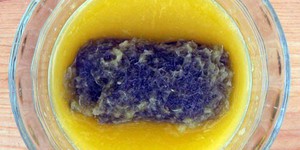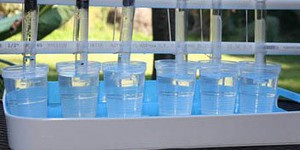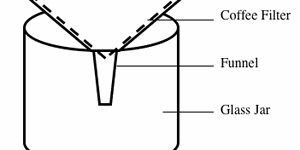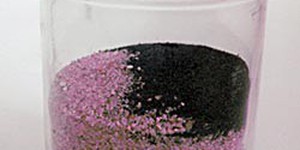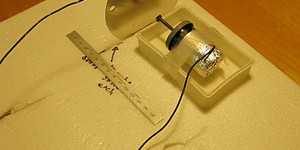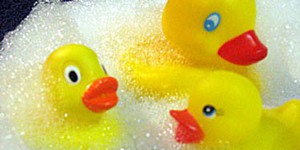Others Like “Which Metal Is the Most Resistant to Corrosion?” (top 20 results)
|
Have you ever left your bike outside in the rain? If so, you might have discovered unpleasant surprises afterwards—reddish-brown patches, known as rust, and your wheels, brakes, and gears might have stopped working so smoothly. In this chemistry science fair project, you'll learn why rust, a type of corrosion, is a serious problem. You'll also discover that not all rains are the same! Find out which ones can speed up the rusting process.
Read more
Earth's atmosphere, the ocean of air that blankets the planet, is mostly nitrogen and oxygen, with small amounts of other gases. How much oxygen is present in air at sea level? In air high up in the Appalachians or Rockies? Atop Mount Everest? How much oxygen is present in the air you breathe? Here's a project that shows you how to measure the percentage of oxygen in an air sample.
Read more
This project uses liquid cultures and agar plates to investigate the effects of different concentrations of a food preservative on microbial growth.
Read more
Have you ever mixed together salt and sand? It is fun to see how all of those tiny grains of salt and sand mix together! But what if you had to separate them out again? Do you have nightmares of tiny tweezers, a magnifying glass, and hours spent picking grains of salt and sand apart? Do not be afraid, there is another way! In this chemistry science project you will use the differences in solubility between salt and sand to find out the simple "solution" to this problem.
Read more
Have you ever looked in the kitchen cupboard and found a container of tiny white grains, but you were not sure if they were sugar or salt? They look very similar. How could you tell them apart? Well, you know that sugar and salt taste very different. Taste is actually called a property, and properties are used to describe and identify different materials. Properties can also be used to physically separate things. In this science project, you will use different properties to create a way…
Read more
Fill a jar a little more than half full with fresh water. Make a solution of salt water, and add a drop or two of food coloring to it. Pour the salt water solution into a plastic cup with a small hole in the bottom, and then place the cup in the jar with fresh water. (The only connection between the fresh and salt water should be via the hole in the bottom of the cup.) With the right combination of hole size and salt concentration, you will see an oscillating current develop in the jar. …
Read more
Solar cells are popping up on rooftops everywhere these days and are a model for clean, renewable energy.
Did you ever look at those solar panels and wonder how we can get electricity produced by solar cells
when the sun is not shining? It is a great question because solar panels do not produce electricity when
it is dark outside. One strategy to overcome this challenge is to store the energy produced by solar
cells during the day in the form of a fuel that can be used at a later time. In…
Read more
Have you ever gotten a shock touching a doorknob after walking across a carpet? Static charge is responsible for that shock. Wouldn't it be cool to save up and store all of that charge in a homemade jar? It would almost be like storing lightning. This science project will show you how to do that.
Read more
Do you want your hair to be shiny after you wash it? Do you want your clothes to stay bright and soft after laundering, and last a long time? You might think that a special shampoo or detergent can make this happen, but in this chemistry science fair project, you'll discover that how well people and things get clean has a lot more to do with the type of water used for washing than any special shampoo or soap. Did you know that water can be classified as either soft or hard? Soft water lathers…
Read more
Making your own bubble solution is fun, but sometimes the bubbles don't seem to work as well as the solutions you buy in the store. In this experiment you can test if adding corn syrup or glycerin to your bubble solution will make it just as good as the stuff you can buy. This experiment will have you blowing bubbles!
Read more
|
Explore Our Science Videos
Video Game Demonstration
Find Your Blind Spot!
Design and Make Automata


